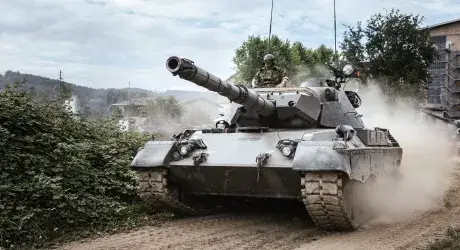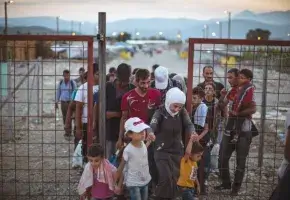Civil Wars, Violence, and International Responses

The Academy study on Civil Wars, Violence, and International Responses is driven by the desire to provide new tools for analyzing, responding to, and, where possible, preventing the threats posed by the collapse of state authority associated with civil wars.
The current decade has witnessed the dramatic resurgence of civil wars and the devastating humanitarian consequences they inflict on vulnerable people, societies, and states. With over 10 million people starving and 3 million seeking asylum and protection overseas, Yemen and Syria stand as powerful reminders of the obsolescence and inadequacy of the current international approach to conflict management and resolution.
Drawing on the Academy’s convening power across disciplines, the initiative has two broad goals:
- To examine the trans-national security threats emanating from civil wars and weak states, and
- To identify policy options for mitigating these threats and for addressing civil wars where US national security interests are at stake.
Read more about civil wars, and the policy questions driving the project
Main findings and policy implications
People
Karl W. Eikenberry
Stephen D. Krasner
Michele Barry
Abdeta Dribssa Beyene
Stephen D. Biddle
Tanja M. Börzel
Charles Call
Susanna Campbell
Martha Crenshaw
Lyse Doucet
Tanisha M. Fazal
James D. Fearon
Vanda Felbab-Brown
Francis Fukuyama
Sumit Kumar Ganguly
Miguel García-Sánchez
Richard Gowan
Sonja Grimm
Jean-Marie Guéhenno
Joseph Hewitt
Steven Heydemann
Bruce Jones
Stathis N. Kalyvas
Nancy E. Lindborg
Sarah Kenyon Lischer
Clare Lockhart
Aila M. Matanock
Seyoum Mesfin
Stewart Patrick
Barry R. Posen
William Reno
Thomas Risse
Hendrik Spruyt
Stephen Stedman
Eric Stollenwerk
Paul H. Wise
Publications
Project Outcomes
This project produced a two-volume Special Issue of the Academy’s journal Dædalus. The first volume, published in Fall 2017, focused on empirical evidence, explanatory frameworks, and identifying the threats that emanate from civil wars and weak states. The second volume focused on international responses and policy options and was published in Winter 2018. Still, there remain important questions about threats to U.S. interests and world order posed by the breakdown of state control and civil wars, including terrorism (and the employment of WMD), the spread of conflicts fueled by the involvement of outside powers, destabilizing refugee flows, and pandemics. In the current political environment, these are issues of interest to a broad audience, both domestic and international. Drawing on the Academy’s convening power across disciplines, this project seeks not only to contribute to current policy-making but also to contextualize current trends by building a larger conceptual understanding of the threats posed by the collapse of state authority associated with civil wars.
Since 2015, the Academy project team has engaged with a wide range of scholar and policy communities, including the UN, to discuss the main findings of the project in order to inform policymaking processes. In 2021, project cochairs Karl W. Eikenberry and Stephen Krasner published “Good Enough” Governance: Humility and the Limits of Foreign Intervention in Response to Civil Wars and Intrastate Violence, which presents a synthesis of the project’s research as well as key findings from these outreach activities.






